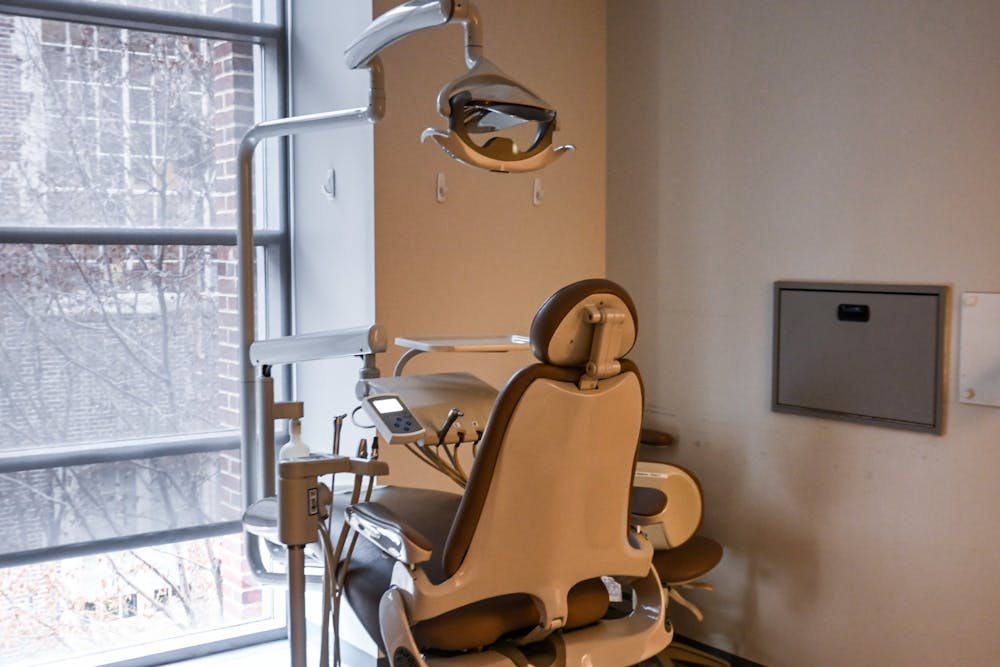
Since Penn Dental Medicine ceased regular operations on March 13, in-person visits are strictly for dental emergency treatments.
Credit: Maria MuradPenn Dental Medicine will continue to provide care online using telemedicine and treat dental emergencies in person while Pennsylvania remains under a stay-at-home order, Penn Today reported.
Pennsylvania Governor Tom Wolf announced on March 22 that dentists could not operate without proper protective gear, including N95 masks, causing most dentists in the state to close. The shutdowns created high demand for emergency dental care. After pushing for a reevaluation of the guidelines, Penn Dental Medicine will treat patients facing dental emergencies after screening patients through telemedicine, Penn Today reported.
After Penn Dental Medicine ceased regular operations on March 13, dentists began screening patients using questionnaires and temperature readings, Penn Today reported. Penn Dental Medicine has treated approximately 12 to 20 patients per day, and conducted 40 online consultations, Penn Today reported. Online consultations allow dentists to prescribe medicine, and in-person treatments include tooth extractions and crown replacements.
“The dental emergency can be on a wide gamut; it can be as simple as a sensitive tooth because of exposed root to life-threatening, such as uncontrolled bleeding or infection with facial swelling that can easily spread into vital structure,” Penn Dental Medicine associate dean for clinical affairs Najeed Saleh told Penn Today.
Penn Dental Medicine has plans to return to regular treatment once the pandemic ends, but may continue to use telemedicine for consultations, Penn Today reported. To cover costs, Penn Dental Medicine has also established an emergency fund.
In the long term, Penn Dental Medicine is looking to treat patients in person when it is safe to do so, School of Dental Medicine Dean Mark Wolff told Penn Today.
“At some point we have to start treating patients,” Wolff told Penn Today. “What’s next for us is figuring out how to start safely bringing people into the facility and delivering care that is safe to the provider and patients as they come through."
Penn Medicine has hosted one of the nation's largest telemedicine centers since 2018 when it established the Center for Connected Care. Earlier this month, the Hospital of the University of Pennsylvania introduced telemedicine options for pregnant women to avoid exposure to the virus by decreasing their visits to the hospital.
The Daily Pennsylvanian is an independent, student-run newspaper. Please consider making a donation to support the coverage that shapes the University. Your generosity ensures a future of strong journalism at Penn.
Donate



